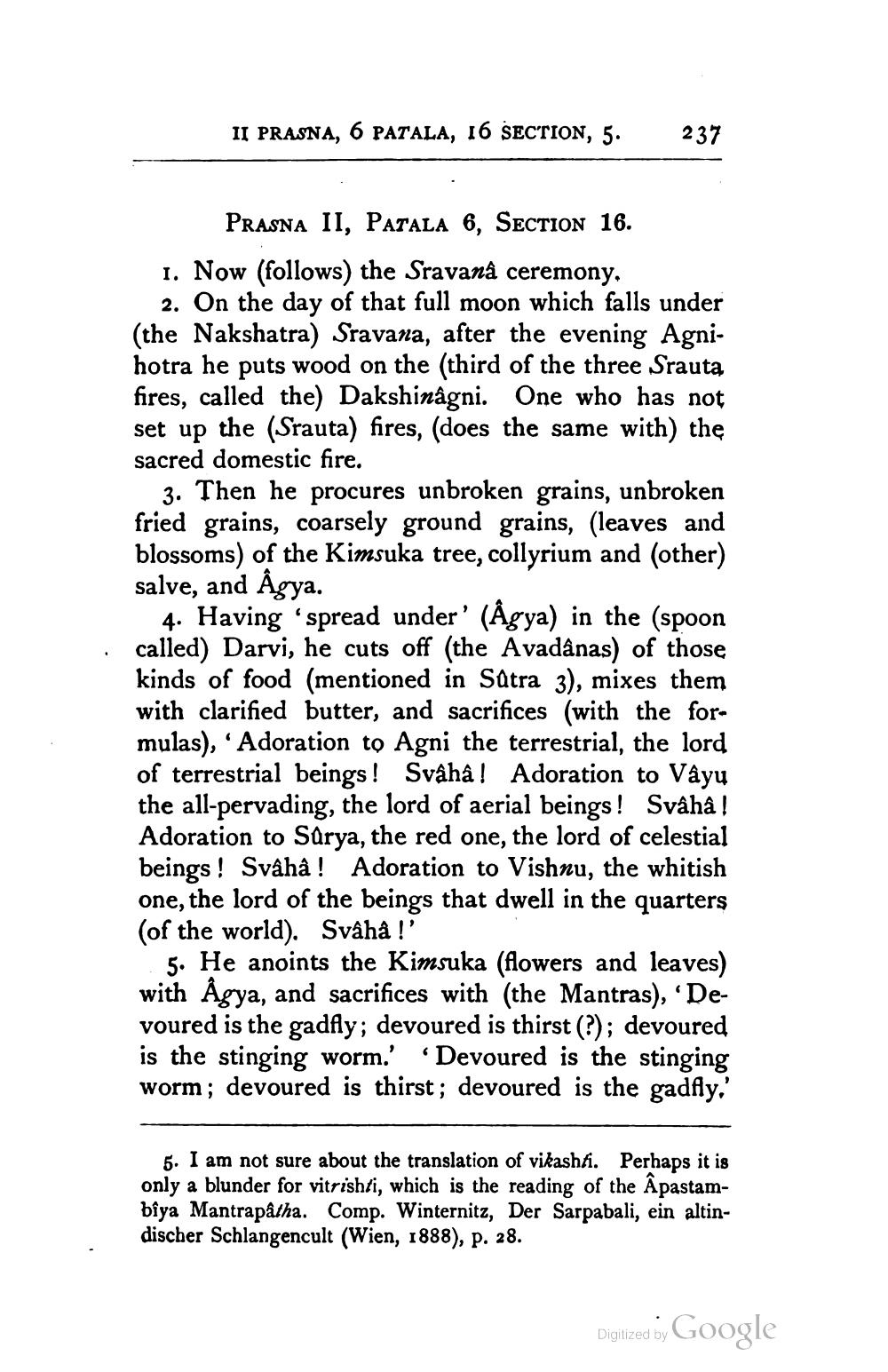________________
II PRASNA, 6 PATALA, 16 SECTION, 5. 237
PRASNA II, PATALA 6, SECTION 16. 1. Now (follows) the Sravanâ ceremony.
2. On the day of that full moon which falls under (the Nakshatra) Sravana, after the evening Agnihotra he puts wood on the (third of the three Srauta fires, called the) Dakshinâgni. One who has not set up the (Srauta) fires, (does the same with) the sacred domestic fire.
3. Then he procures unbroken grains, unbroken fried grains, coarsely ground grains, (leaves and blossoms) of the Kimsuka tree, collyrium and (other) salve, and Âgya.
4. Having 'spread under' (Âgya) in the (spoon called) Darvi, he cuts off (the Avadânas) of those kinds of food (mentioned in Sûtra 3), mixes them with clarified butter, and sacrifices (with the formulas), 'Adoration to Agni the terrestrial, the lord of terrestrial beings! Svâhâ! Adoration to Vâyu the all-pervading, the lord of aerial beings! Svâhâ! Adoration to Surya, the red one, the lord of celestial beings! Svåhâ! Adoration to Vishnu, the whitish one, the lord of the beings that dwell in the quarters (of the world). Svâhâ!'
5. He anoints the Kimsuka (flowers and leaves) with Agya, and sacrifices with (the Mantras), 'Devoured is the gadfly; devoured is thirst (?); devoured is the stinging worm.' 'Devoured is the stinging worm; devoured is thirst; devoured is the gadfly,'
5. I am not sure about the translation of vikashi. Perhaps it is only a blunder for vitrishti, which is the reading of the Âpastambîya Mantrapâtha. Comp. Winternitz, Der Sarpabali, ein altindischer Schlangencult (Wien, 1888), p. 28.
Digitized by Google




